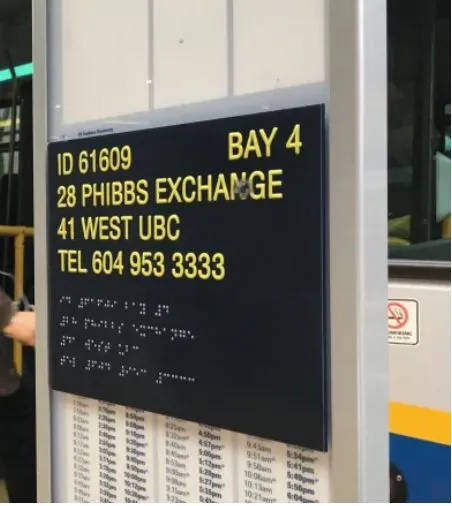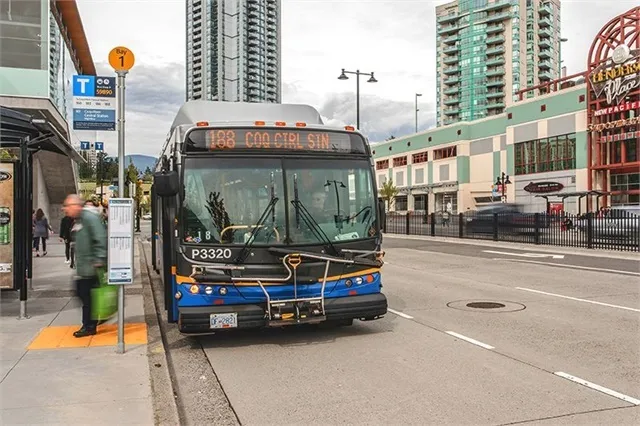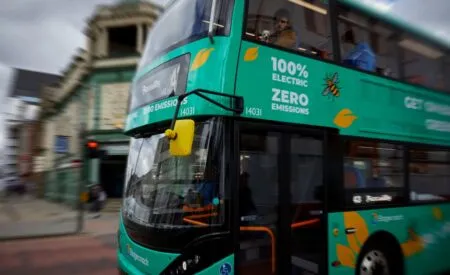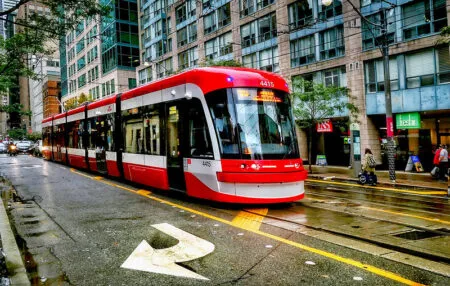The transportation authority for Canada’s greater Vancouver metropolitan area public, TransLink is moving ahead with its plans to implement an industry-leading program benefiting customers who are blind or partially sighted.
The TransLink board has a long-standing commitment to making public transport available for as many people as possible and has recently approved C$7m (US$5.3m) for its new transit accessibility program. Beginning in 2020, tactile and braille signage will be installed at every bus stop, and tactile walking surface indicators (TWSI) will be laid at stations and bus exchanges, making TransLink one of the first transit authorities in North America to provide this level of information across the bus network. The tactile and braille signage will be installed at approximately 8,500 bus stops with:
- The unique five-digit bus stop ID number;
- The words ‘STOP’ or ‘BAY #’ to identify the bus stop;
- Route numbers;
- The customer service telephone number.
TransLink will also be looking at developing a wayfinding technology pilot program that will help customers better navigate the system using data sent directly to a phone or tablet.
 TransLink’s work to test Universally Accessible Bus Stops first started in 2012 and included the installation of TWSI, tactile and braille at various bus stops including Joyce-Collingwood Station as part of a pilot project. Throughout the process, TransLink has consulted with representatives from the community through a wide-reaching survey and direct engagement with key stakeholders through the Access Transit Users’ Advisory Committee (UAC).
TransLink’s work to test Universally Accessible Bus Stops first started in 2012 and included the installation of TWSI, tactile and braille at various bus stops including Joyce-Collingwood Station as part of a pilot project. Throughout the process, TransLink has consulted with representatives from the community through a wide-reaching survey and direct engagement with key stakeholders through the Access Transit Users’ Advisory Committee (UAC).
“We are committed to making our transit system accessible for as many people as possible,” said TransLink’s CEO, Kevin Desmond. “We know that a lot of our customers with vision loss rely on transit to get around the region and this is another example of the work we are doing for a very important community.”
The Canadian National Institute for the Blind’s (CNIB) executive director, Jennifer Yankanna, commented, “The CNIB Foundation for British Columbia and Yukon are proud of the strides that TransLink is undertaking to become a leader in accessibility by making the investment to ensure that bus stops are equipped with the TWSI and the addition of braille and tactile signage.” says CNIB’s.
UAC member, Rob Sleath, noted, “It is important to understand that changing an environment actually lessens the effect of the disability. I applaud TransLink for being a leader and continuing to provide accessible public and custom transit services for people who need it most. This marks a special milestone for our community.”





